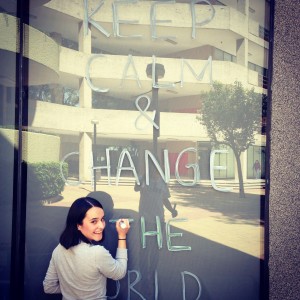I found the noun’s article very interesting and extremely accurate to its time. At that era the women customization to men was very popular, if they wanted to be taken serious or been accepted in “manly” activities they had to customize as men. Even tough the reason is a cultural and sexist one. The Alferez noun was a brave person who figured out the way to achieve her goals. The fact that she had to behave and dress as men was evidently not hard at all for her; actually, she’s famous in Latino America for her sexual preference and for being transgender.
I fully enjoyed her writing; she writes so detailed that you can almost live what she is describing. The first chapter of the beginning of the life as a noun shows how antique was religious education, she was beaten, put in prevue and mostly thought to respect the authority. I think, that as a reasonable person, she left, that action was just the right thing to do (evidently, not in that time). So, risking her life more than anything; she started -really young- her way to follow her dreams. Apparently, she was lucky to find her uncle, and before that, to find people from royalty that gave her a job. It is evident that what opened her mind and encouraged each time more, is all the town she visited, all the people (some royal, some not) she met, and most importantly, that she travelled by herself, at the end of the day that made her more mature than people her age.
I want to emphasize the scene when her brother told her to run from her life, cause, he knew this was just the beginning of the struggle for her, and she did too. Stepping from one church to another, shed stood running away from people who wanted her. The relief is that she could find someone to be with.
Her story is interesting in the sense she ever had something really certain, and the decision of following her dreams was like a rollercoaster- sometimes up, another ones down. She’s to admire, because she never really gave up, even tough she was perused, never had a real home, she step apart from her family, had to fight (literally) for herself. I find her convictions more important than the harm she could have done, the reason is that she stepped for women at that time. She did what it had to be done.
